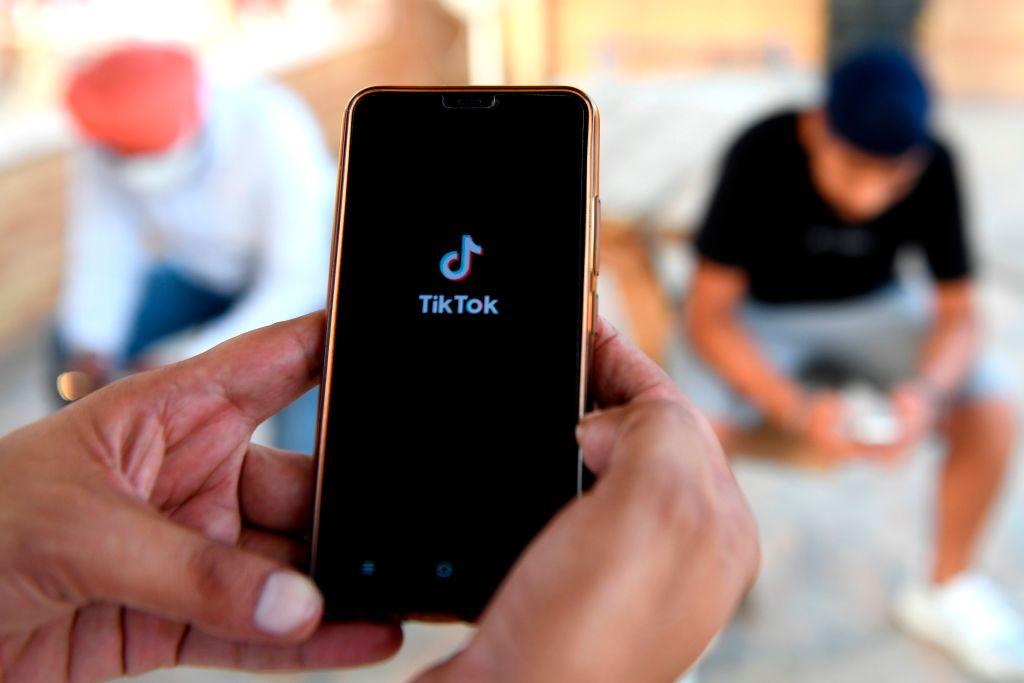Defence concerns about TikTok should take ADF families into account
Posted By Amy Johnson on August 28, 2020 @ 11:07

Apprehensions about the social networking platform TikTok fuelled by media headlines have included suggestions [1] that there are risks associated with content shared by Australian Defence Force personnel. While the Department of Defence hasn’t made a specific statement against TikTok other than to include the platform on its list [2]of non-approved apps for Defence devices, there are valid concerns about the engagement of military members any on social media platform.
However, focusing only on social media use by serving members disregards another crucial cohort—families and loved ones. Connecting on social media is critical for the health and wellbeing of military families, but it can expose Defence to security risks. Defence needs to do more to assist families in mitigating those risks.
Popular military TikTok hashtags, such as #militaryspouse, #defencefamily, #adf and #defencelife, include thousands of videos posted by siblings and partners of serving members. The videos cover multiple facets of military life, including upcoming and current deployment activity and homecomings, and frequently feature ADF members in uniform. The unofficial defence spouse Facebook pages [3] are also popular with ADF families. The content they post is similar to that of other social networking users who are seeking to connect with others in their groups and share their experiences.
Of course, social media content about the personal experiences of ADF families is not inherently negative. It helps others find a community, normalises experiences and also reminds civilian communities about the ongoing work of the ADF, all of which can help create understanding of and support for future operations. The issue is ensuring that this engagement can be done safely, with both operational and personal security front of mind.
Concerns about military personnel on TikTok began with US claims [4] that the platform could facilitate the release of sensitive location, image and biometric data to TikTok’s Chinese parent company, ByteDance, and thus to the Chinese government. ByteDance has denied these claims. Like the ADF, the US has banned defence personnel from downloading the app on government-issued phones. Analysts have suggested that the cybersecurity risks from TikTok [5] are similar to those associated with other social media platforms and that the current panic appears to be generated by uncertainty and unfamiliarity with the platform.
The content shared by Australian military families on TikTok provides an apt case study demonstrating how clear messaging about secure social media behaviour is not being distributed directly to families, who have access to privileged information and sit at the intersection of military and civilian communities.
With no training or information specifically addressing families’ use of social media, they are left to their own devices when it comes to engaging online. My research [6] on attitudes to social media security among ADF partners found that they get cybersecurity information from a range of sources including civilian workplaces, friends, family and ‘common sense’, but almost never from their ADF family member or Defence networks.
Defence’s full social media policy is not publicly available [7], which makes it difficult for partners to apply Defence advice to their own online engagement. And while civilian partners are not covered by Defence’s social media policy, research participants discussed incidents where ADF members were questioned by senior personnel about their partners’ or dependents’ online activity. Partners are very resistant to the idea of the ADF restricting their social media activity, claiming their civilian status places them outside of the ADF’s authority.
When families are not directly provided with cybersecurity information and support, they may inadvertently rely on outdated or false information. This is particularly problematic when new issues arise, such as the recent concerns over TikTok. If Defence needs to request families to stop using an app or adjust the content they post on sites, it has no clear or established way to do it.
Defence needs to recognise that families play an important role in the security of the ADF and bring them directly into discussions about online safety. These discussions should be mutually respectful, based on the motivations and needs of the families as well as the requirements of the ADF.
My research shows that defence partners feel they already have sufficient awareness to be able to engage safely online. Partners take online security very seriously, particularly when it comes to protecting the safety and wellbeing of their serving partner, and want to avoid any negative consequences resulting from the release of sensitive information.
But continuing to exclude partners and other family members from Defence’s cybersecurity conversations could contribute to false or inflated perceptions of their ability to engage safely when interacting on social media.
Article printed from The Strategist: https://aspistrategist.ru
URL to article: /defence-concerns-about-tiktok-should-take-adf-families-into-account/
URLs in this post:
[1] suggestions: https://www.abc.net.au/news/science/2020-01-16/defence-ban-tiktok-china-security-fears/11869512
[2] include the platform on its list : /australias-defence-department-calls-time-out-on-tiktok/
[3] unofficial defence spouse Facebook pages: https://www.defence.gov.au/DCO/_Master/documents/Family-Survey/2019-Survey-Report.pdf
[4] US claims: https://www.nytimes.com/2020/01/04/us/tiktok-pentagon-military-ban.html
[5] cybersecurity risks from TikTok: https://www.wired.com/story/tiktok-ban-us-national-security-risk/
[6] My research: https://www.jstor.org/stable/26488491?seq=1#metadata_info_tab_contents
[7] not publicly available: https://www.aspistrategist.ru/report/winning-hearts-and-likes
Click here to print.